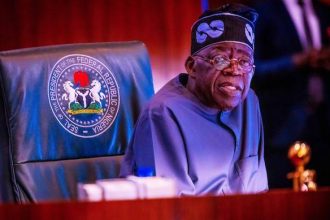South African president calls for lifting of Omicron travel bans
Cyril Ramaphosa says travel restrictions ‘scientifically unjustified’ as more countries report cases of new, highly mutated variant.
South African President Cyril Ramaphosa has called on countries to “urgently” reverse “scientifically unjustified” travel restrictions linked to the discovery of a new variant of the coronavirus.
His comments on Sunday came as the highly mutated variant – dubbed Omicron – continued spreading around the world, with new cases identified in the Netherlands, Denmark and Australia.
Dozens of countries have blacklisted South Africa and its neighbours since South African scientists this week flagged the new variant. The World Health Organization (WHO) has designated Omicron a “variant of concern” that is potentially more contagious than previous variants.
“We call upon all those countries that have imposed travel bans on our country and our southern African sister countries to immediately and urgently reverse their decisions,” Ramaphosa said, in his first address to the nation since the detection of Omicron.
“The prohibition of travel is not informed by science,” he added.
“The only thing the prohibition on travel will do is to further damage the economies of the affected countries and undermine their ability to respond to, and recover from, the pandemic,” he added.
“These restrictions are unjustified and unfairly discriminate against our country and our southern African sister countries.”
The abrupt grounding of flights has spooked South Africa’s vital tourism industry, with booking cancellations increasing directly following the announcement. The country’s tourism sector lost $10bn in bookings in 2020 because of a drop in foreign visitors, and is estimated to lose about $10m every week flights are suspended from key overseas tourist markets.
Reporting from Johannesburg, Al Jazeera’s Fahmida Miller said there had been “a significant amount of frustration” among government officials and members of the scientific community over the travel curbs.
“There is a lot of concern around what these travel restrictions will mean [economically] for southern Africa as a region, especially ahead of the holiday period, when thousands of visitors from Europe are expected,” she said. “A lot of anger from the president and the government around the good work, they say, scientists have been doing on genome sequencing and also tracing COVID-19 changes, but instead South Africa being punished.”
Praising South Africa for informing the United Nations’ health agency as soon as its national laboratory identified the Omicron variant, Matshidiso Moeti, WHO’s regional director for Africa, also criticised travel curbs and called on countries to follow science and international health regulations in order to avoid such measures.
“Travel restrictions may play a role in slightly reducing the spread of COVID-19 but place a heavy burden on lives and livelihoods,” Moeti said in a statement. “If restrictions are implemented, they should not be unnecessarily invasive or intrusive, and should be scientifically based, according to the International Health Regulations, which is a legally binding instrument of international law recognised by over 190 nations.”
Shabir Madhi, a South African vaccinologist, told Al Jazeera it was “naive” for countries “to believe they can stop the spread of this variant with a blanket ban on countries in southern Africa”.
“The virus has already found its way into these societies from individuals that haven’t even travelled to or come into contact with anyone from southern Africa,” he said. “In South Africa, we have one of the globe’s best COVID sequencing capacities based on our experience with treating HIV and TB. We have been ahead of the game for a while now and we are thus a victim of our success.”
While scientists are still assessing Omicron’s virulence, the WHO said on Sunday it was “not yet clear” whether the variant spreads more easily from person to person, or whether infection with the variant causes more severe disease compared with other strains.
“There is currently no information to suggest that symptoms associated with Omicron are different from those from other variants,” the agency said.
While preliminary evidence suggests there may be an increased risk of people who previously had COVID-19 being reinfected with Omicron, information is currently limited.
The WHO said PCR tests continue to detect infection with Omicron, adding it was working to understand the potential effects of the variant on existing countermeasures, including vaccines.












